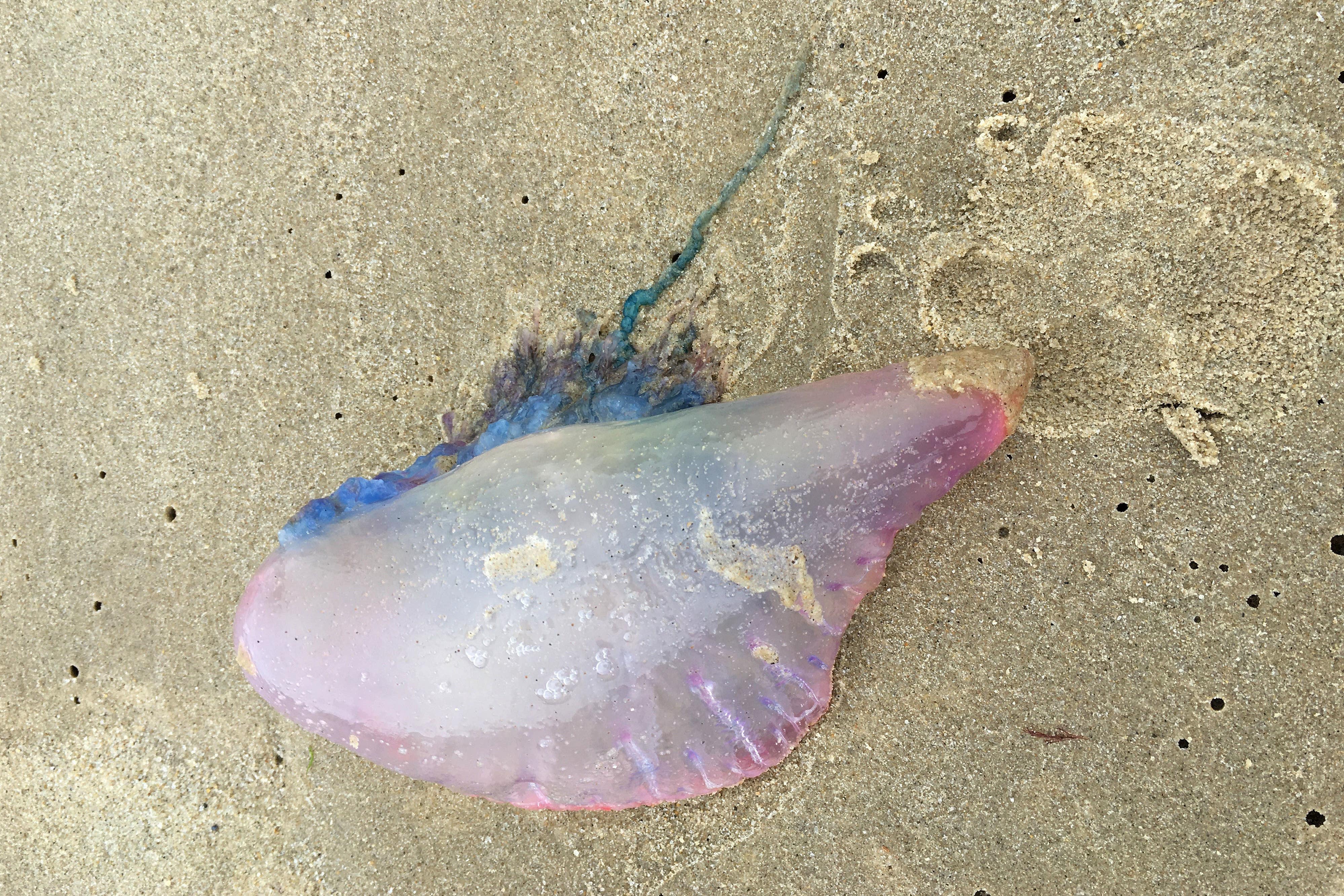More Portuguese man o’war jellyfish spotted along UK coastline
A total of 1,315 jellyfish sightings were reported to the Marine Conservation Society for its annual review, including a 2% rise in the man o’war.

An increase in sightings of Portuguese man o’war jellyfish, which can cause whip-like wounds from their stings, has been recorded in a survey of marine wildlife along the UK coastline.
Members of the public reported a total of 1,315 jellyfish sightings to the Marine Conservation Society for its annual review, including a 2% increase in the Man O’War.
A spokeswoman for the charity said: “Storms in October 2021 and February 2022 led to an increase in Portuguese man o’war sightings, which were up by 2% from the previous year.
Although they have a bad reputation, these jellyfish-like creatures don’t normally occur in UK waters, preferring instead to drift in the open ocean
“Although they have a bad reputation, these jellyfish-like creatures don’t normally occur in UK waters, preferring instead to drift in the open ocean.
“Sightings of these unusual visitors were primarily along the south-west coast and the west coast of Scotland, with westerly winds carrying them across the Atlantic to our shores.
“Sometimes stranding at the same time was the violet sea snail, which floats on the surface in bubble rafts, feeding on Portuguese man o’wars.”
The MCS regularly records sightings of eight jellyfish species, with the compass jellyfish and the moon jellyfish, each accounting for 23% of sightings, seen in smacks – the collective noun for jellyfish – of more than 100.
The spokeswoman said 11 other species were spotted and added: “The charity saw an increase in ‘other’ species reported, up from 5% to 9% this year.
“Among these were the bioluminescent crystal jellyfish, which made up 3% of total sightings, and sea gooseberries at 1% – the highest percentages reported to date.
“Tracking reports of ‘other’ species like these could show how changes in temperatures might be impacting jellyfish diversity in the UK.
“Crystal jellyfish are usually found in the Pacific Ocean, rarely spotted in UK waters, suggesting that warmer temperatures may be impacting jellyfish diversity in the UK.”
Investigating the relationships between species can help us to discover more about our amazing underwater world and how it might be changing in response to things like climate change
A total of 11 turtles, which feed on jellyfish, were reported, six of which were live leatherback turtles spotted on the coast of Scotland.
Amy Pilsbury, MCS citizen science project lead, said: “We use these sightings, alongside scientists, to spot trends in the distribution of jellyfish and marine turtles around the UK.
“Investigating the relationships between species can help us to discover more about our amazing underwater world and how it might be changing in response to things like climate change.”
Bookmark popover
Removed from bookmarks